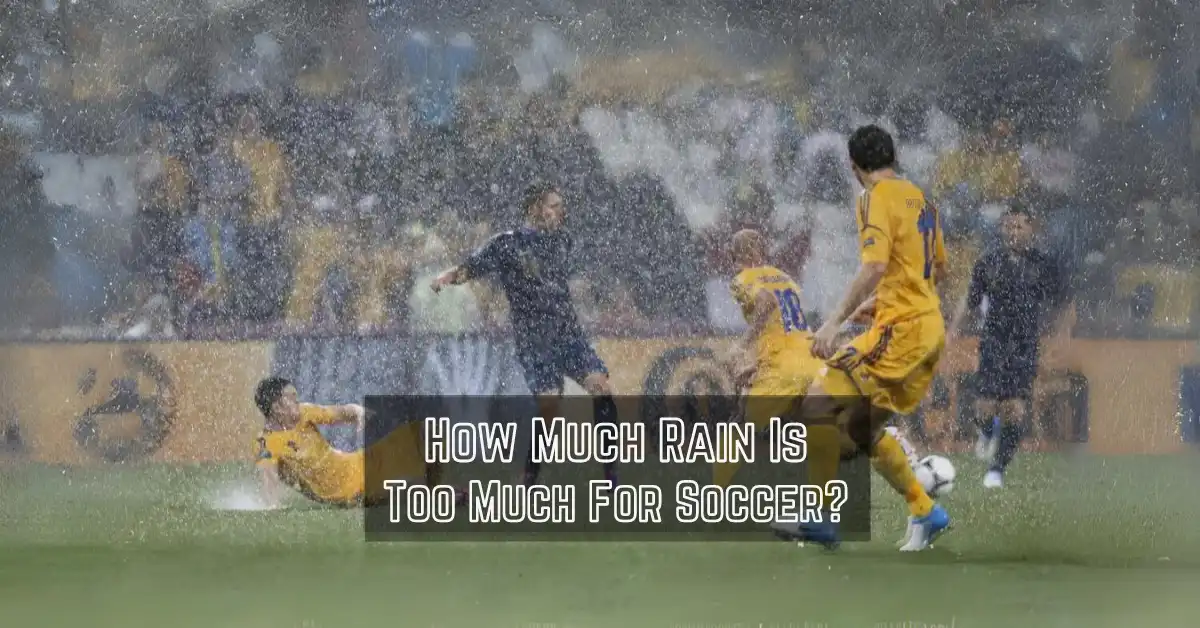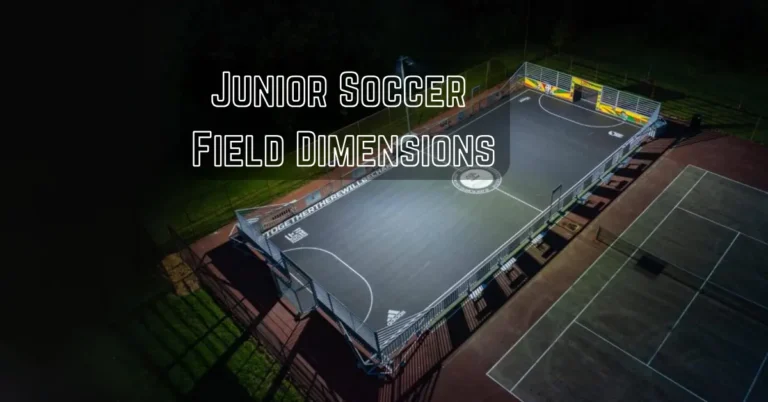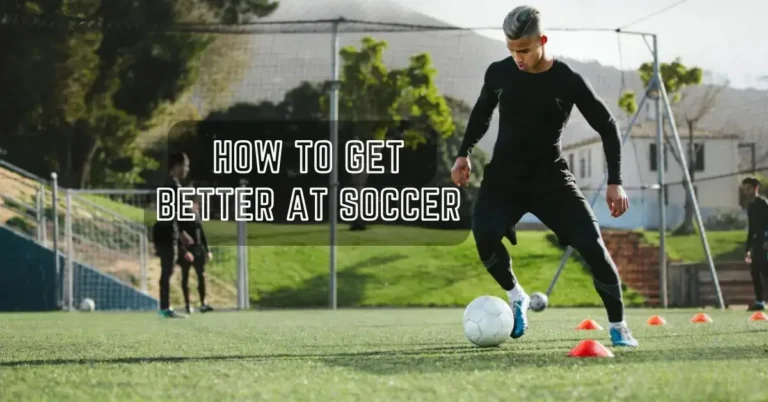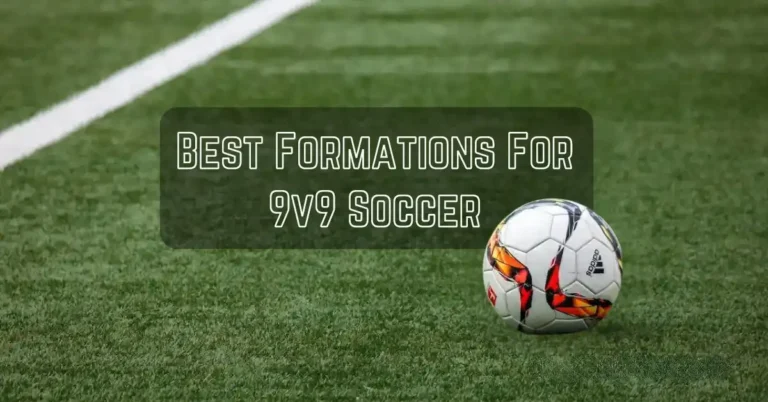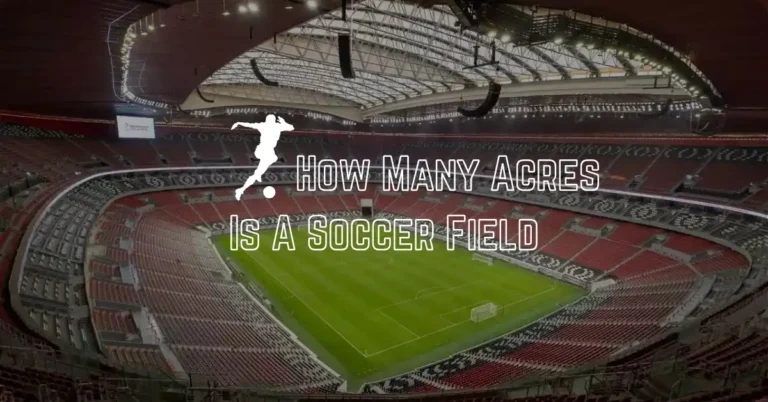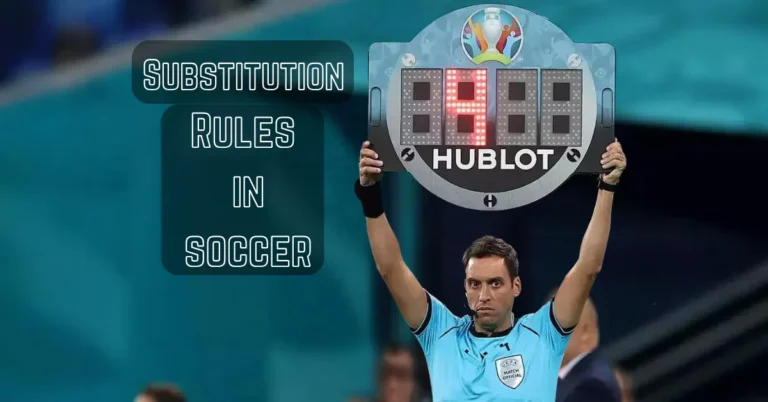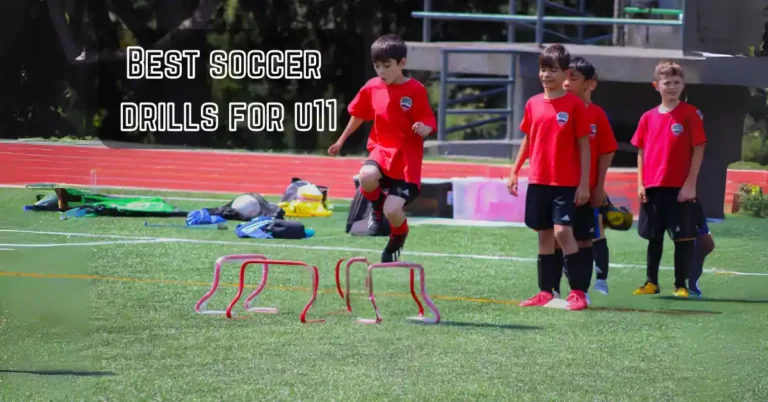How Much Rain Is Too Much For Soccer? A Complete Guide
A soccer match can become more exciting and unpredictable when it rains, but there is a limit to how much the weather can affect the contest. Several aspects must be considered when deciding how much rain is too much for soccer.
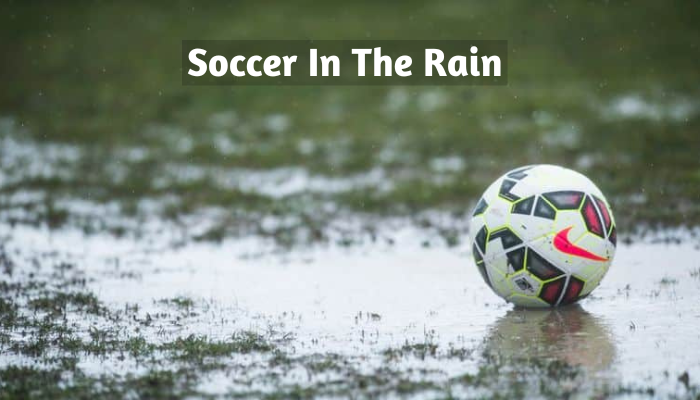
These include player safety, the playing field’s state, and the game’s overall enjoyment. Rainfall will be too much for soccer when it prevents the ball from moving perfectly on the ground because of standing water.
Can You Play Soccer in the Rain?
Whether you can play soccer in the rain depends on a number of things, such as how hard it’s raining, how good the field is, and your own personal taste.
Some signs when the match should be paused in the rain
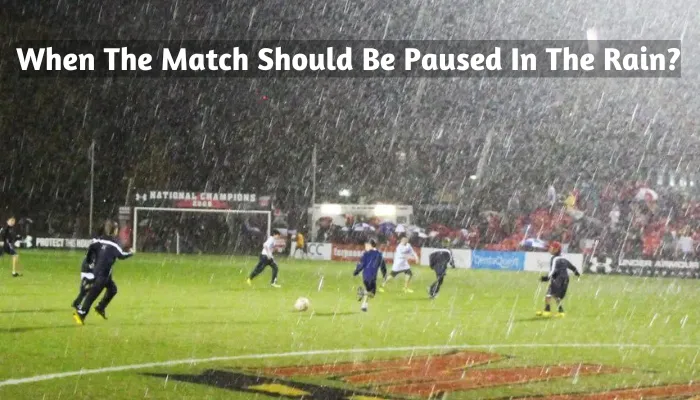
You should stop the match when you see these signs while playing a soccer match in the rain.
Excessive Rainfall:
Raindrops start softly tapping, but soon, they pour down heavily, making everything wet and turning paths into slippery mud. Puddles grow bigger and might cover low areas. It’s important to find a safe place before the heavy rain becomes risky.
Risk of Lightning Strikes:
The sky gets angry and starts flashing bright, hot lightning in zigzag shapes. Loud thunder rolls and shakes the ground. Each lightning bolt brings the danger of getting shocked, so it’s important to quickly find a safe place on the ground.
Heat and Humidity Challenges:
While rain typically brings cooler temperatures, there can be challenges associated with heat and humidity in wet conditions. The combination of warm air and rain can create a muggy atmosphere, leading to discomfort and potential fatigue for soccer players.
How should you play soccer on a rainy day?
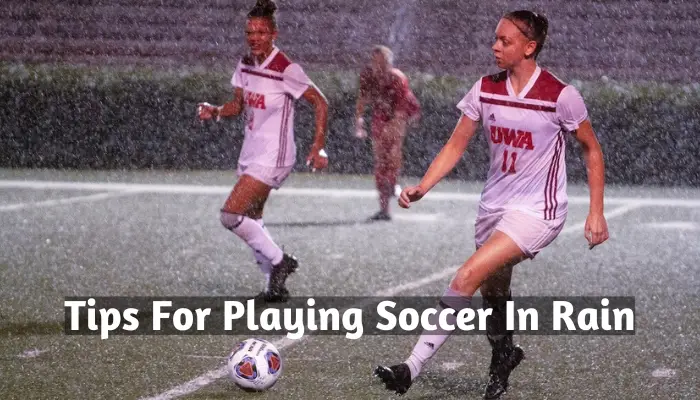
Playing soccer on a rainy day can present some challenges due to slippery and wet conditions. Here are some tips to make the most of playing soccer in the rain.
Adapt Your Passing Game:
In rainy conditions, precision becomes paramount in passing. Focus on short, accurate passes to minimize the risks associated with the slippery pitch. Quick, one-touch passes help maintain control and reduce the likelihood of turnovers.
Players should be agile in their movements, adjusting to the unpredictable behavior of the ball on the wet surface. Emphasizing close ball control ensures a more effective passing game in challenging weather.
Adapt Your Defensive and Attacking Game:
Wet and slippery conditions demand a strategic shift in both defense and attack. Defenders should prioritize stability and positioning, opting for cautious challenges instead of risky tackles. On the attacking front, consider ground-based shots, recognizing the challenges goalkeepers face with wet balls.
Swift transitions between defense and attack are crucial, capitalizing on moments of vulnerability in the opposing team. Striking a balance between a solid defense and quick, calculated attacks is key for success in rainy-day soccer.
See Also: Best Formations For 11v11 Soccer
How Do Soccer Players Stay Warm in the Rain?
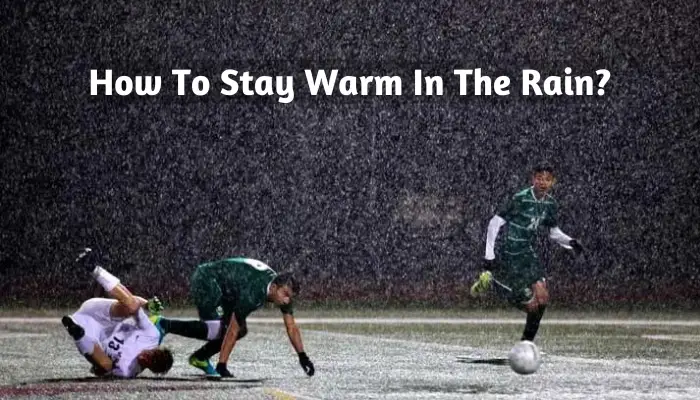
Professional soccer players use these tips to stay warm in the rain.
Keep Moving:
Soccer players stay warm in the rain by constantly moving on the field. Active warm-ups, dynamic stretches, and continuous movement help generate body heat, keeping muscles warm and agile despite the wet conditions.
Keep Inside As Much As Possible:
During breaks or when not actively playing, players seek shelter to stay warm. Taking refuge in covered areas helps prevent excessive exposure to the rain, preserving body heat and energy for when they return to the field.
Wear The Right Gear:
Choosing appropriate gear is essential. Waterproof and insulated clothing, including jackets and pants, helps players stay dry and warm. Additionally, wearing thermal or moisture-wicking base layers beneath the uniform provides an extra layer of insulation.
Warm That Bench:
Players on the bench stay warm by utilizing heated benches or blankets. These tools prevent the body temperature of substitutes from dropping during periods of inactivity, ensuring they are ready to perform when called upon.
Bring The Heat:
Some players use external heat sources, such as hot packs or warm-up creams, to maintain warmth. Applying these aids before the game or during breaks can help combat the cold and keep muscles loose.
Always Bring Extra Dry Layers:
Carrying spare, dry layers of clothing is crucial. Changing into fresh, dry gear during halftime or breaks helps players stay comfortable, preventing the chilling effect of wet clothes on the body.
See Also: Soccer Clean Sheet
Difficulties that can occur while playing soccer in the rain
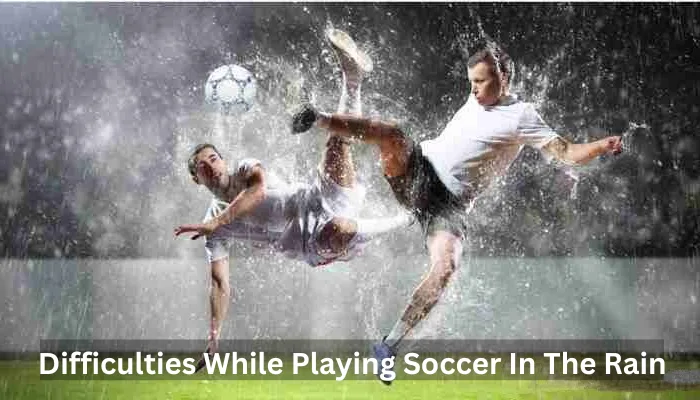
You will have to face some difficulties while playing soccer in the rain.
Increased Ball Slipperiness:
Playing soccer in the rain poses the challenge of a slick ball. The wet surface causes the ball to become slippery, making passes and shots more unpredictable. Players need to adjust their techniques to ensure better ball control in these conditions.
Pitch Sogginess:
Rain can transform the soccer pitch into a soggy and uneven surface. This makes running, dribbling, and sudden changes in direction more challenging. The unpredictable bounce of the ball adds an element of uncertainty to the game, requiring players to adapt their strategies accordingly.
Visibility Constraints:
Rain can significantly reduce visibility on the field. Heavy downpours or mist can make it difficult for players to see each other, affecting passing accuracy and overall awareness. This limitation requires players to rely more on their instincts and communication with teammates.
Potential Immunity Impact:
Constant exposure to rain and cold temperatures may lower players’ immunity, making them more susceptible to illnesses. Playing in wet conditions for an extended period can contribute to fatigue and increase the risk of players falling ill.
See Also: Average Soccer Player Height
How Does Weather Affect Soccer?
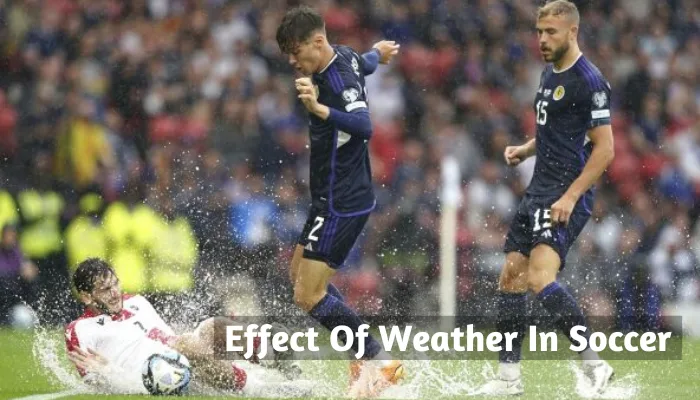
The weather greatly impacts soccer, which also affects gameplay dynamics and player effectiveness. Rain creates difficulties with a slick pitch that affects ball control, and snow can change the playing surface and make visibility difficult.
The ball’s trajectory during passes and shoots is changed by wind. Severe heat increases the risk of dehydration, exhaustion, and tactical miscalculations, highlighting the importance of flexibility in various weather scenarios.
Table of some matches that were canceled due to weather conditions
| Matches | Date | Persistent drizzle makes the pitch slippery and dangerous |
|---|---|---|
| Manchester United vs. Everton | December 2nd, 2023 | Thunderstorms and lightning create safety concerns |
| Aston Villa vs. Crystal Palace | December 16th, 2023 | Persistent drizzle makes pitch slippery and dangerous |
| Arsenal vs. Tottenham Hotspur | December 24th, 2023 | Sudden downpours causing waterlogging and potential surface damage |
| Real Madrid vs. Valencia | December 18th, 2023 | Persistent drizzle makes the pitch slippery and dangerous |
| Villarreal vs. Real Sociedad | December 27th, 2023 | Storm surge from nearby coast flooding access tunnels and field perimeter |
FAQs
Yes, you can play soccer after rain, but the condition of the field may affect the game.
Soccer may get canceled if the rain makes the field unsafe or if there’s lightning.
Footballers can play in the rain, but it can affect the ball’s movement and players’ performance.
Soccer practice should be canceled if the field is waterlogged or if there’s a risk of lightning.
Football can be more challenging in the rain due to slippery conditions and a heavier ball.
To stay dry in soccer in the rain, players often use waterproof gear and clothing.
conclusion
People will always argue about whether rain makes a soccer game better or worse, but the answer lies in the delicate balance between challenge and chance. Unfortunately, too much rain can make the game dangerous and hard to follow. However, playing soccer in the rain can be thrilling and show how tough and flexible soccer players are.

